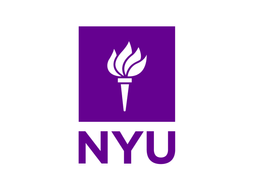How to Win the Nancy Thorp Poetry Contest - A Complete Guide
If you’re a high school girl with a flair for creative writing and poetry, consider submitting your work in contests — it can be a great way to see where your skills lie and receive constructive feedback from judges highly regarded in this field.
Participating in poetry, creative writing, and related contests can help you hone your craft and build a body of work. This is quite useful, particularly if you want to pursue a literature degree! It will add to your writing portfolio and demonstrate passion and interest in a subject, something college admissions boards highly value.
An option worth exploring is the Nancy Thorp Poetry Contest. In this blog, we will review the contest, providing information on its features, eligibility, selection criteria, and prestige, and ending with 10 tips to help you win!
What is the Nancy Thorp Poetry Contest all about?
Hollins University, a private institute in Hollins, Virginia, offers high school girls the Nancy Thorp Poetry Contest in their sophomore and junior years. Winners receive cash prizes and scholarships, publish their writing, and more.
Hollins University is well-known for its English Language and Literature majors. Its notable alumni include several authors who have won multiple awards. Nancy Thorp was a Hollins Class of 1960 graduate and young poet. She died in 1962 and her parents set up the contest to honor her memory.
Who can participate in the contest?
The contest is open to all high school girls in their sophomore or junior year. Applicants must be U.S. citizens.
What do winners receive?
Hollins University honors seven winners annually — one winner and six runner-ups. The winner receives a $350 cash prize, their poem published in Cargoes, Hollins’ literary magazine, ten copies of Cargoes, a $5,000 scholarship renewable over four years if they apply to Hollins University ($20,000 total), and a tuition and housing waiver to attend the Hollinsummer: Creative Writing program which costs $1,100.
Runner-ups receive a $1,000 renewable scholarship if they apply to Hollins ($4,000 total), their poem published in Cargoes, two copies of the magazine, and a $500 fee waiver to attend Hollinsummer.
What are the important dates?
The submission deadline is October 31. Winners are typically announced in March.
Note: Applications for the 2025 program are yet to open, you can stay updated on the program website.
How do I apply for the contest?
To participate, you must submit up to two poems that you consider your best work. These pieces must not be published elsewhere. You can submit unpublished poems that have received school honors.
Who judges the entries?
Entries are judged by Hollins University’s creative writing faculty and students pursuing their M.F.A. in creative writing. Faculty members have published several books and poems and won multiple awards between them.
Is the contest prestigious?
The Nancy Thorp Poetry Contest can be considered prestigious and highly selective. In 2024, it received 399 applicants and selected seven winners, with an acceptance rate of less than 2%. The contest is well-known, though not as renowned as other U.S. and international poetry competitions.
Who are the previous winners?
Previous years’ winners are high school girls who are U.S. citizens. In 2024, Claire Zhou won for her entry, “Translation.” Liyanjin Zhu won in 2013 for her poem “Helen of Troy Puts the World in Her Back Pocket.” You can read these entries (and many more) in the Cargoes magazine, which can be downloaded here.
What can I do to better my chances of winning the contest?
If you’re interested in applying, here are 10 handy tips to help you win the Nancy Thorp Poetry Contest:
Research eligibility and contest requirements thoroughly
Check whether you can participate before applying — the contest is only open to high school girls in their sophomore or junior year and must be U.S. citizens. Ensure you do not submit published work — Nancy Thorp only accepts unpublished poetry. You may submit writing that has received school honors but isn’t published.
Research previous years’ winning entries.
You can find poems written by winners and runner-ups here, in Hollins University’s Cargoes magazine. Familiarizing yourself with previous years’ entries can give you a better sense of the competition, understand what judges may be looking for, and know what level you need to be at.
Be authentic
Your work should express genuine emotion and be about something you feel deeply about. Ideally, the emotions you express — joy, sorry, anger, etc — should resonate strongly with the reader. Avoid writing that comes across as excessively intellectual.
Be technical with your writing
Ensure you are familiar with the different features of poetry and their uses, such as rhyming sequences, line breaks, and punctuation, which can significantly alter the tone and impact it has on a reader.
Paint a picture!
Poetry often relies on strong imagery that you can visualize in your mind’s eye (think: “La Belle Dame Sans Merci” by John Keats). Being descriptive with your writing can help create mental pictures that make a poem more interesting, engaging, and readable.
Use fresh perspectives
While you likely read hundreds, if not thousands, of poems preparing for the Nancy Thorp contest, ensure that your writing is inspired by other poems but not derivative. Originality is key and you should refrain from repeating often-used themes and cliches.
Practice, practice, and practice
Make reading and writing poetry a daily habit. Write haikus, sonnets, free verse, and other kinds of poetry to familiarize yourself with the different styles. Use writing prompts that force you to be creative and push you out of your comfort zone. Implementing these practices can make you a better and more well-rounded poet.
Cut out the outside world
Meaningful and sensitive poetry that speaks to different people’s emotions often comes from introspection, contemplation, and giving yourself space to investigate feelings deeply. You can try this by reserving a few hours on the weekend exclusively for meditation and poetry writing.
Get others to read your work
Feedback is key to improving your writing and becoming a better writer. Let a diverse set of people read your work: teachers, parents, friends, and family. Each will have a unique interpretation that can influence your writing for the better.
Rinse and repeat
Not all writing will be great. Allow yourself to write sub-par poetry that doesn’t connect with anyone. Remember that it’s part of the process and there isn’t a linear trajectory toward becoming a great poet. As long as you’re dedicated and consistent, your effort will pay off!
One other option - the Lumiere Research Scholar Program
If you want to apply your literary skills in the field of research, you could also consider applying to one of the Lumiere Research Scholar Programs, selective online high school programs for students founded with researchers at Harvard and Oxford. Last year, we had over 4000 students apply for 500 spots in the program! You can find the application form here.
Also check out the Lumiere Research Inclusion Foundation, a non-profit research program for talented, low-income students. Last year, we had 150 students on full need-based financial aid!
Kieran Lobo is a freelance writer from India.











